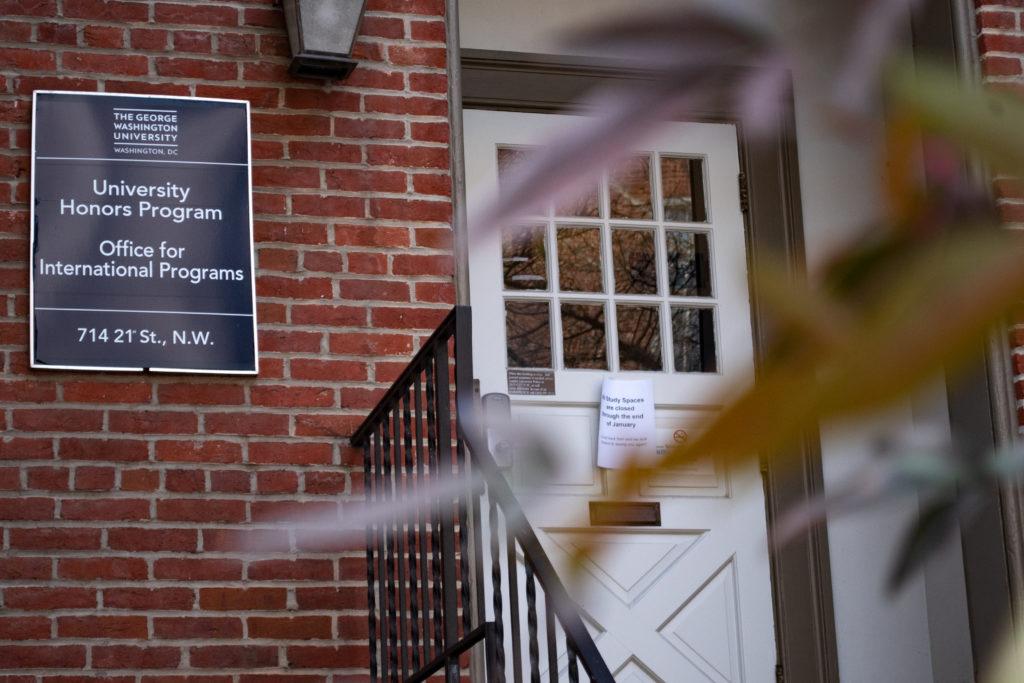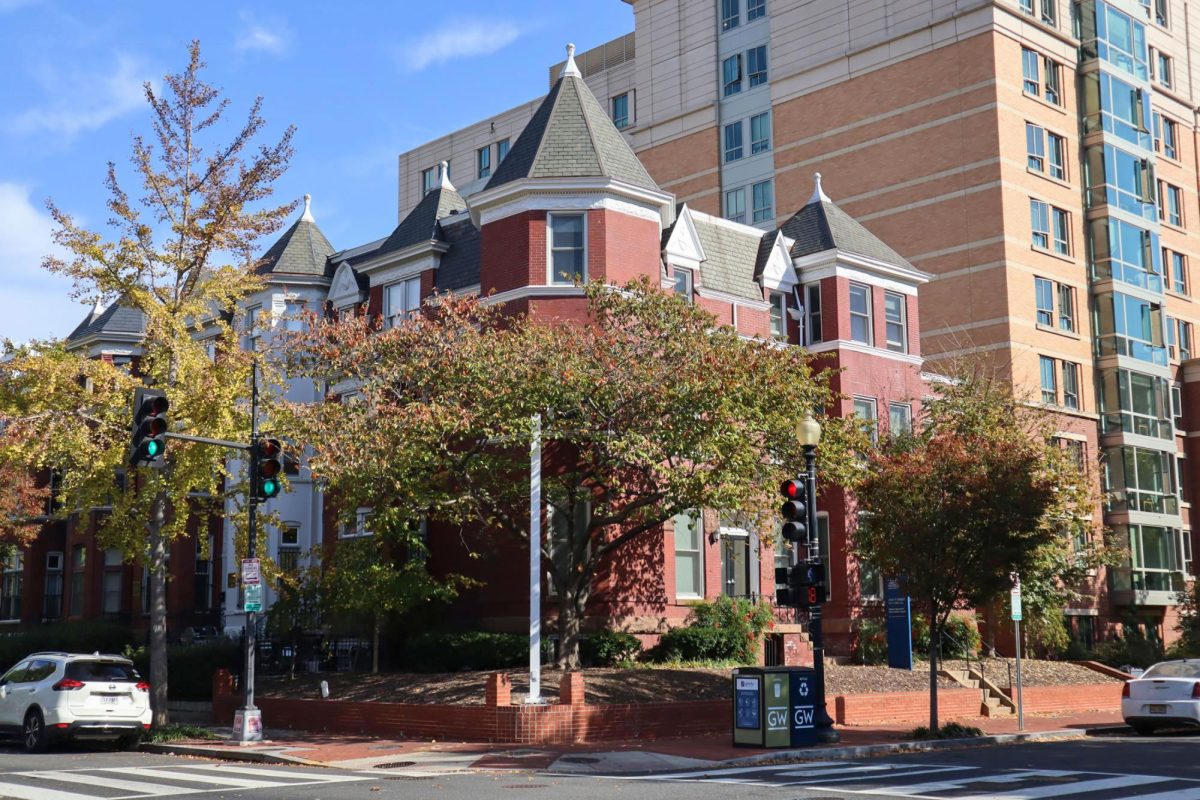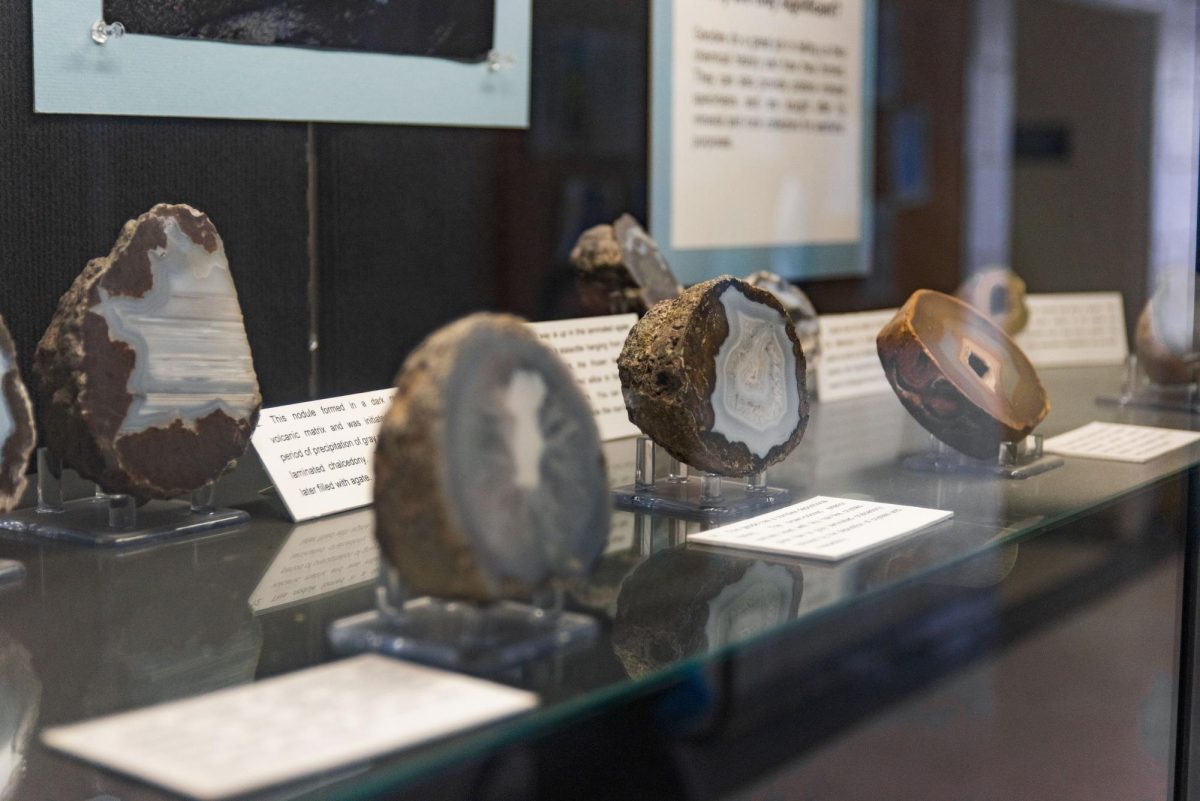Officials released an updated report last week on a series of recommendations and policies for diversity and inclusion in the University Honors Program.
The report states that the UHP has instituted workshops on community building, added a course substitution policy for courses on diversity-related topics and revised the peer adviser matching process to reflect students’ preferences and concerns about diversity, equity and inclusion in the program. Officials said the diversity program that GW implemented during the current academic year received positive feedback from students, and the UHP will continue to improve on the new initiatives.
Bethany Kung, the director of the UHP, said students thought the new community building workshops, a series of meetings to learn about diversity and inclusion at the start of the academic year, were “incredibly valuable,” and the UHP intends to include the workshop in future first-year student orientations. She said the workshop led by Jordan West, the associate vice provost of diversity, equity and community engagement, gave students the opportunity to have “honest conversations” about diversity with each other to strengthen community ties.
“The UHP is also thankful for our faculty, staff and students who are working together as part of several task forces developed by the UHP [diversity and inclusion] committee,” Kung said in an email. “We look forward to many of their ideas, such as community events and valuable student input related to faculty hiring and our peer adviser program, coming to fruition this semester.”
Officials released a survey to freshmen in the fall to ask about their experiences with support and inclusion in the program and found that most students experience “impostor syndrome” where they may not feel like they are deserving of their achievements.
Kung said freshmen who responded to the survey also wanted the peer adviser program – where they are connected with upperclassmen mentors – to be more “identity-based,” connecting underrepresented freshmen with minority advisers.
Kung said the upper-level course substitution process pilot program, where students can request a non-UHP course to count toward a UHP upper-level requirement, was a success in the fall, so faculty fully adopted the policy earlier this semester. The program approved 15 of the 17 petitions made in the fall, and students opted to take courses like Queer Studies and African Literature and Politics, according to the report.
Kung added that the UHP’s diversity and inclusion committee established task forces last fall each composed of six to seven faculty, staff and students to investigate more ways to support diversity within the program.
“We look forward to many of their ideas, such as community events and valuable student input related to faculty hiring and our peer advisor program, coming to fruition this semester,” Kung said.
But the UHP BIPOC collective, a collective of Black, Indigenous and students of color in the honors program, said the changes don’t go far enough to address their diversity concerns in the program. Members of the collective said goals outlined in the report, like the diversity and inclusion workshops, were “surface-level” solutions that did not address the lack of representation of BIPOC students and curriculum in the program.
“The continued absence of meaningful representation in curriculum and student, faculty and staff demographics has left UHP spaces and programming inaccessible to POC in the program,” members said in a statement.
Members of the collective said the course substitution process adopted this year doesn’t help BIPOC students opt out of required courses that are damaging to their sense of belonging because they don’t integrate diversity into their curriculum. They said even with the process, classes are still taught by white professors because the only professors of color have left the program, according to the statement.
Members said some of them have left the honors program after they did not feel supported for their values or diversity.
“Though it may be too late for us that are graduating, we hope it is better for the students to come,” they said.
Abigail Lam, a freshman honors student, said implementing the diversity and inclusion workshop during orientation was a “step in the right direction.” She said during the workshop she attended a breakout discussion called “Being at a Primarily White Institution,” where students talked about their experiences attending an institution with a racial makeup like GW’s.
“It was kind of comforting to just hear people’s experiences and how they aligned with mine,” Lam said.
She said UHP staff’s promotion of diversity and inclusion was a “one-and-done” situation, and officials did not continue diversity efforts after orientation. But her professors have encouraged students to share their thoughts and feelings in class to promote inclusion, she said.
Lam said increased diversity would benefit class discussions and the freshman students’ experience living together.
“They definitely planted a seed in people’s minds, I would say, but it just wasn’t really followed up on in my opinion,” she said.
Deborah Mativo, a member of the UHP diversity and inclusion committee and a freshman honors student, said there is “room for improvement” among the diversity of the honors faculty. She said she is part of the faculty hiring task force within the committee which is seeking professors who are representative of students from marginalized backgrounds.
“We want people who are devoted and dedicated to the program,” Mativo said.








